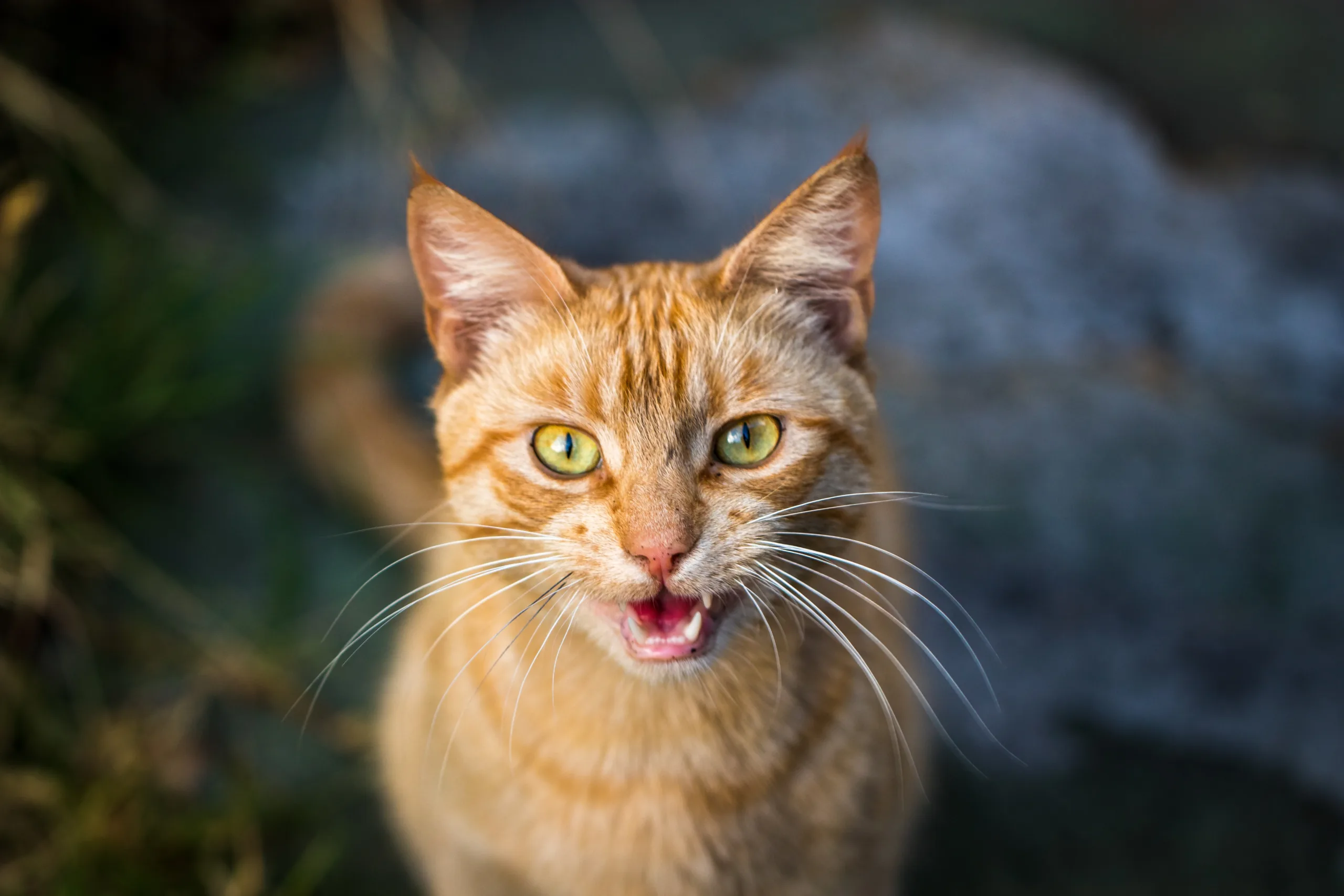Why Do Cats Gag at Food? Cats are known for their finicky eating habits, and sometimes they might exhibit behaviors that leave their owners puzzled, such as gagging at their food. Cat gagging can be a cause for concern, but it’s important to understand the potential reasons behind this behavior. In this article, we’ll explore the various factors that can lead to cat gagging, how to distinguish normal from abnormal behavior, and when to seek professional guidance.
For more about cats click here
Why Do Cats Gag at Food?
Gagging is a reflexive action that occurs when something irritates the back of the throat, the tonsils, or the area near the voice box. While cats may occasionally gag due to an irritant or discomfort, frequent or persistent gagging could indicate an underlying issue that requires attention. Some common reasons why cats might gag at their food include:
1. Hairballs: One of the most common reasons for cat gagging is the presence of hairballs. Cats groom themselves by licking their fur, and during this process, they can ingest loose hairs. These hairs can accumulate in the stomach and form hairballs, leading to gagging and retching as the cat tries to expel them.
2. Dental Problems: Cats with dental issues such as tooth decay, gum disease, or oral infections may experience discomfort while eating. Gagging can occur when the cat tries to chew or swallow food, especially if the act of eating exacerbates the pain.
3. Foreign Objects: Cats are curious creatures and may accidentally ingest foreign objects, such as pieces of toys or string. These objects can become lodged in the throat or gastrointestinal tract, causing gagging and other symptoms.
4. Respiratory Infections: Respiratory infections, such as upper respiratory tract infections, can cause inflammation and irritation in the throat and airways. This can lead to coughing, gagging, and difficulty swallowing.
5. Allergies or Sensitivities: Cats can be sensitive to certain ingredients in their food. If a cat is allergic or sensitive to a specific ingredient, it may gag or show other signs of discomfort while eating.
6. Hair or Debris in Food: If your cat’s food contains hair, debris, or foreign particles, it can trigger a gagging reflex. Ensure that your cat’s food is clean and free of contaminants.
Distinguishing Normal Gagging from Concerning Behavior
It’s important to distinguish between occasional, normal gagging and frequent or severe gagging that could indicate a health issue. Normal gagging might occur when a cat is trying to expel a hairball or clear its throat. However, if you notice any of the following signs, it’s time to seek veterinary care:
- Frequent or persistent gagging
- Difficulty breathing
- Vomiting or retching without expelling a hairball
- Decreased appetite
- Weight loss
- Lethargy or weakness
- Coughing or wheezing
FAQs: Addressing Common Questions
Q1: What scent makes cats gag? Cats have a strong sense of smell, and certain scents, such as citrus or strong chemicals, can be aversive to them and may lead to gagging or avoidance behavior.
Q2: Why do cats gag at weird stuff? Cats have sensitive senses, and unfamiliar or strong odors, textures, or substances can trigger their gag reflex as a protective mechanism to prevent ingesting potential toxins or harmful objects.
Q3: Why do cats gag when they hear a comb? The sound of a comb can be associated with grooming for cats. If a cat has had uncomfortable experiences during grooming or has sensitive areas, the sound of a comb could trigger a reflexive response, including gagging.
Q4: Do cats have a gag reflex? Yes, cats do have a gag reflex. It’s a protective response to prevent ingesting or choking on potentially harmful objects or substances.
Q5: Can cats gag from stress? Stress can have physiological effects on cats, including digestive discomfort. In some cases, stress can lead to changes in eating habits and behaviors, which might include gagging or regurgitation.
Q6: Can cats choke on food? Cats can potentially choke on food or foreign objects if they are not properly chewed or if they are swallowed too quickly. It’s essential to monitor your cat while eating and provide appropriate portion sizes.
Seeking Professional Guidance
If you’re concerned about your cat’s gagging behavior, it’s recommended to consult with a veterinarian. A veterinarian can perform a thorough examination, diagnose any underlying issues, and recommend appropriate treatment. Early intervention can help ensure your cat’s well-being and prevent potential complications associated with gagging or other health concerns.
Click here for more
